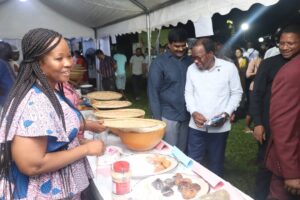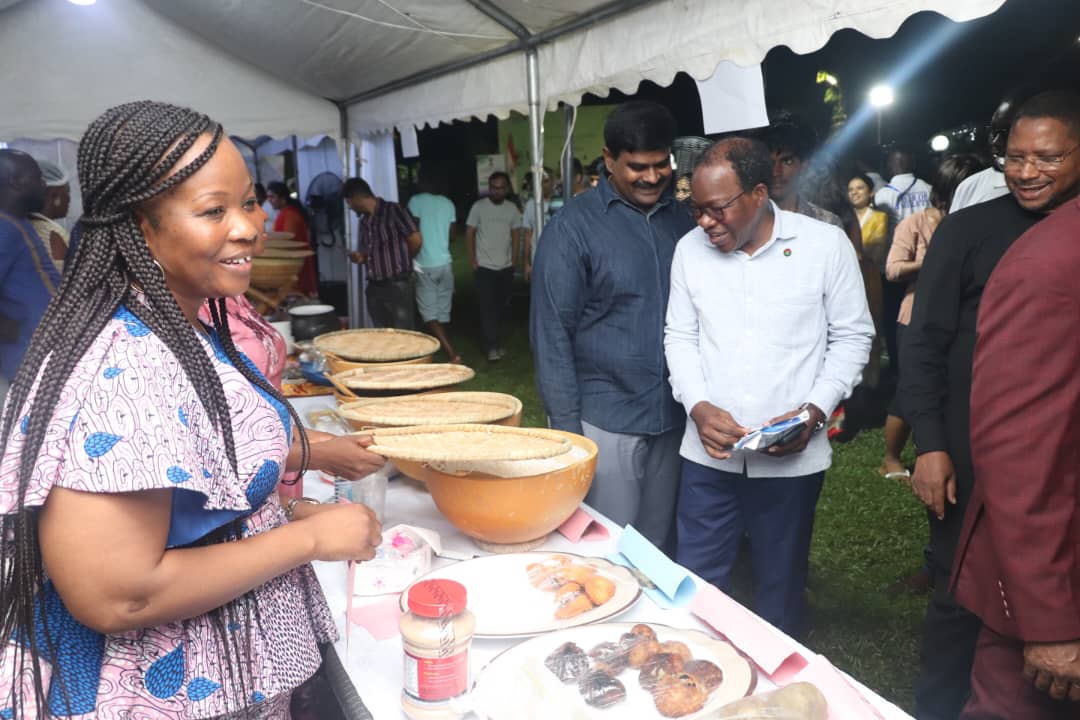
Accra, Ghana//– Food for All Africa, West Africa’s largest food recovery and redistribution organisation, marks a decade of dedicated service in addressing food insecurity and reducing food waste and poverty across Ghana.
The milestone celebration is underscored by the launch of an innovative Black Soldier Fly Legacy Project, a circular economy initiative designed to convert organic food waste into sustainable animal feed and organic fertiliser.
Founded in 2015 following an encounter in Accra where a mentally ill man shared discarded hotel food he picked to feed others on the street, Food for All Africa has grown from a grassroots campaign into the first and largest food bank in West Africa.
Today, the organisation runs major food redistribution operations from its warehouses in the Greater Accra and Ashanti Regions, serving thousands of vulnerable and low-income Ghanaians every week.
A Decade of Impact
In ten years, Food for All Africa has:
- Recovered and redistributed over 5 million kilograms of surplus food.
- Delivered over 10 million meals to vulnerable children, the elderly and people living with disabilities.
- Launched LunchBox, a private sector-led school feeding and nutrition program improving outcomes for thousands of pupils across schools in Ghana.
- Supported over 3,000 mothers and infants with specialised nutrition care.
- Responded to national crises, including the COVID-19 pandemic, distributing food to over 200,000 individuals through its COVID-19 Community Emergency Intervention Program and Food for Ghana’s Frontline campaign.
CEO and Founder, Elijah Amoo Addo, emphasised the role of partnerships in achieving these outcomes:
“The journey of the past decade wouldn’t have been possible without our donors, corporate partners, volunteers and the communities we serve. Our journey would not have been possible with you; this is your legacy too.”
Legacy Project: From Food Waste to Future Wealth
To mark its tenth anniversary, Food for All Africa is pioneering a Black Soldier Fly (BSF) Farming Hub at its Offinso warehouse in the Ashanti Region. The facility will serve as a circular agriculture innovation centre, processing organic food waste into high-protein animal feed and compost fertiliser for agricultural use.
With this initiative, Food for All Africa seeks to:
- Reduce its reliance on food and monetary donations.
- Promote environmental resilience through organic waste management.
- Create income-generating opportunities for the food bank and smallholder farmers.
- Incentivise community participation through a digital waste points system that rewards farmers and vendors for contributing organic waste.
Regional Training & Knowledge Transfer
The success of the BSF project will be underpinned by a technical capacity-building partnership with the International Centre of Insect Physiology and Ecology in Nairobi, Kenya and through the support of the Australian Centre for International Agricultural Research.
Through this collaboration, six Food for All Africa team members were selected for an intensive training program at ICIPE, equipping them with practical skills in insect farming, waste-to-feed conversion systems and sustainable agribusiness operations.
“This opportunity elevates our mission beyond food recovery to circular agriculture and green innovation,” said Programs Manager Caroline Quashie, one of the training participants. “It’s about transforming how we think about waste, hunger and sustainability.”
Call to Action
Food for All Africa will formally launch a fundraising campaign in August 2025 to support the construction and scaling of the BSF facility. The organisation invites partners, philanthropists, and the public to be part of building a sustainable future for food security in Ghana.
“Our next decade begins with innovation, inclusion, and impact,” said Mr. Addo. “Let’s feed Ghana sustainably—together.”


